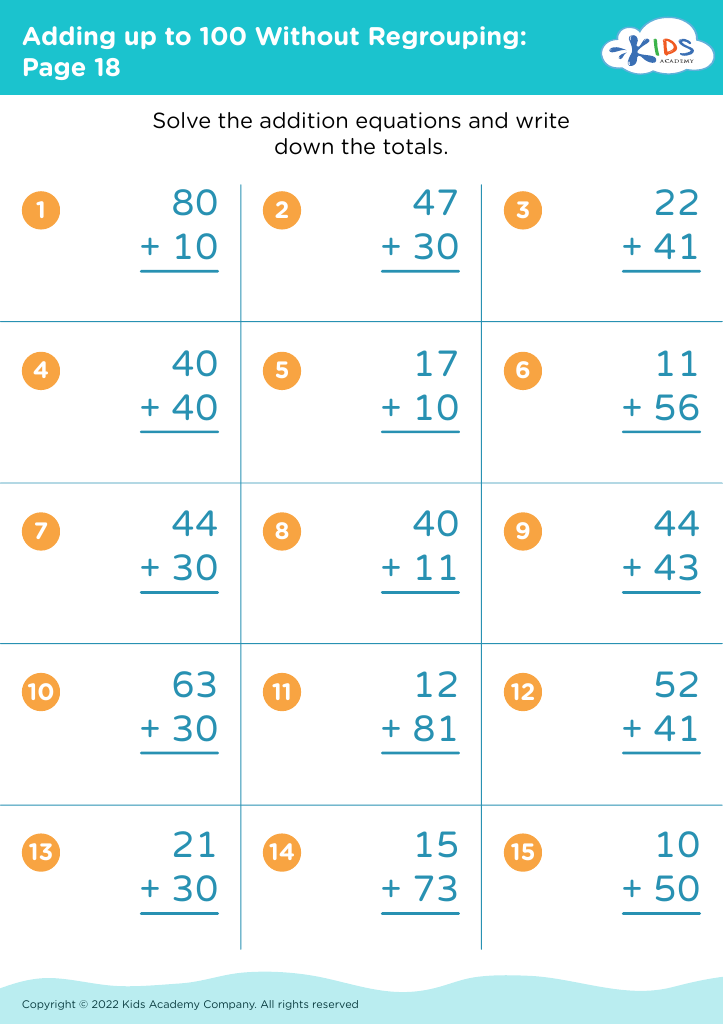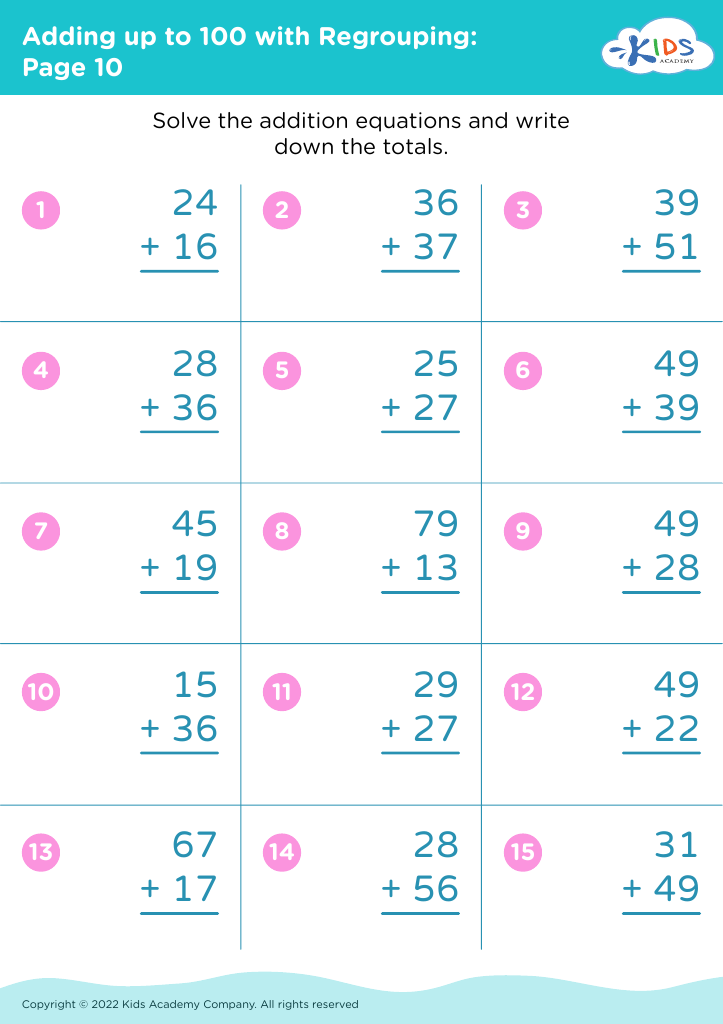Developing math skills Adding up to 100 Worksheets for 8-Year-Olds
3 filtered results
-
From - To
Unlock your child's potential with our "Developing Math Skills: Adding up to 100 Worksheets for 8-Year-Olds." Designed by education experts, these engaging worksheets make learning addition fun and interactive. Tailored for young learners, they help improve arithmetic skills and boost confidence. Each worksheet introduces new challenges, from basic sums to mastering complex problems, ensuring continuous progress. Ideal for classroom use or at-home practice, these worksheets provide children with essential tools to succeed in math. Explore our comprehensive selection of math activities and watch your child’s math abilities flourish. Start today and build a strong mathematical foundation!
Developing math skills that include adding up to 100 is crucial for 8-year-olds for several reasons. At this age, children are solidifying foundational numeracy skills that will support more advanced mathematical concepts in the future. Proficiency in addition within 100 not only boosts their confidence but also enhances problem-solving abilities, as many everyday tasks, from making change to measuring ingredients, require basic arithmetic.
From an educational standpoint, mastering these skills aligns with most curriculum standards and sets students on a successful academic path. It also promotes logical thinking, attention to detail, and the ability to spot patterns—skills valuable beyond mathematics. Young children with strong math abilities are more likely to succeed in other subjects as well, as logical reasoning and critical thinking are transferable skills.
Parents and teachers play a key role in this developmental stage, providing resources, encouragement, and, importantly, patience. Consistent practice and positive reinforcement enable children to approach math with enthusiasm rather than anxiety. By valuing the importance of arithmetic, adults help instill a lifelong appreciation and competence for math, which is indispensable in today’s digital and data-driven world. Investing time and energy now cultivates resilience, proficiency, and a growth mindset critical for future academic and life success.








%20(1).jpg)











